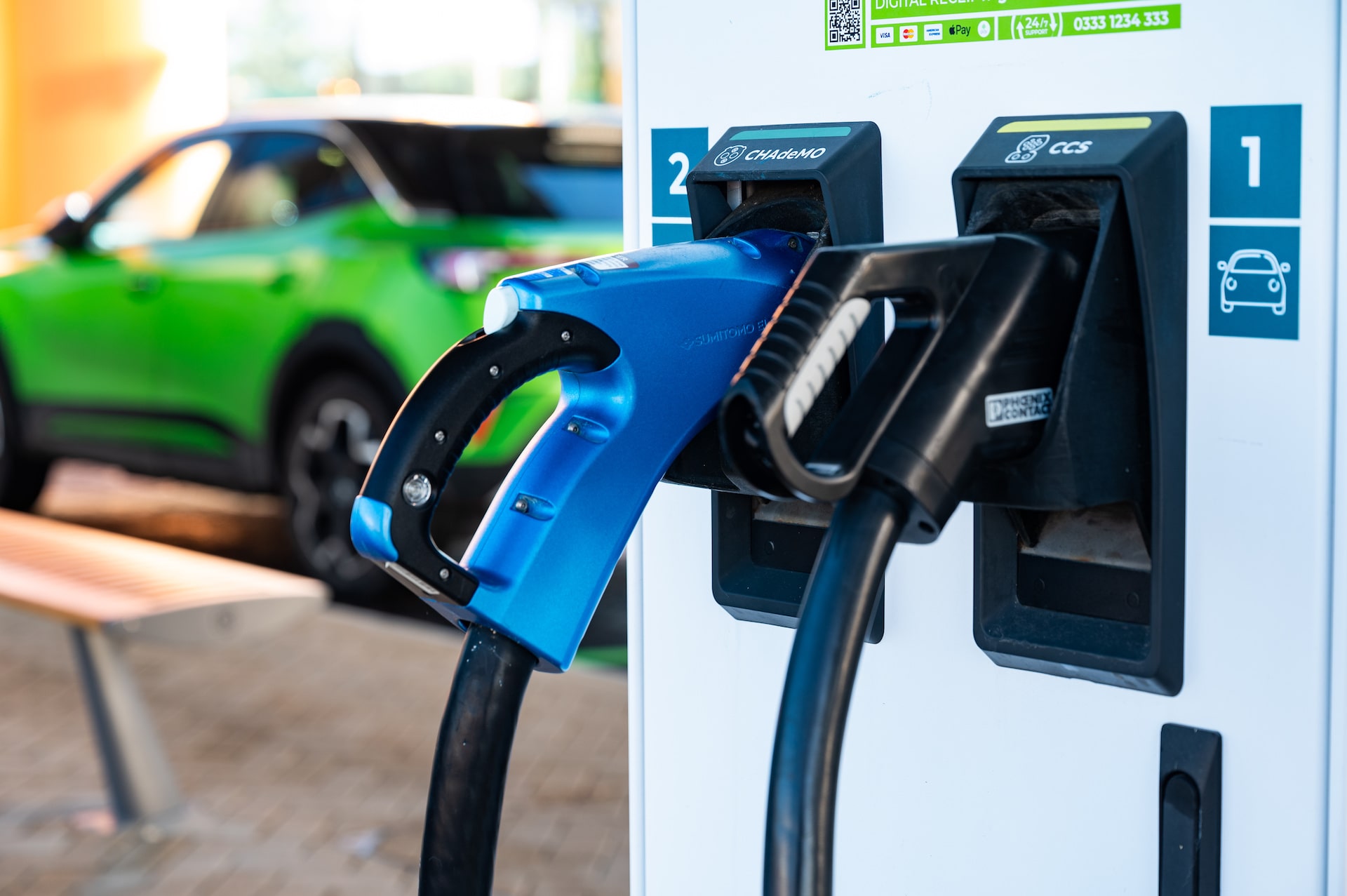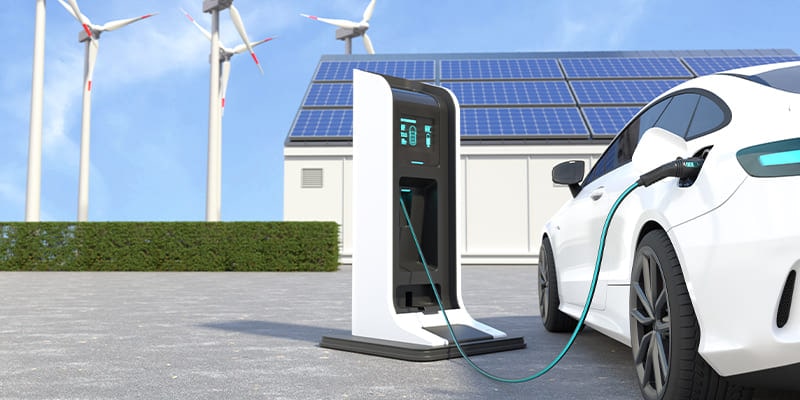Introduction
As more individuals and businesses embrace the benefits of electric vehicles, the demand for a robust and reliable charging infrastructure has become increasingly crucial. In this article, we will explore the concepts of Original Design Manufacturer (ODM) and Original Equipment Manufacturer (OEM) in the context of EV charging stations. By understanding the key differences between ODM and OEM, we can gain insights into their significance and impact on the EV charging industry.
Overview of the Electric Vehicle Market
The electric vehicle market has experienced a remarkable surge in recent years. With increasing environmental consciousness, government incentives, and advancements in battery technology, EVs have become a viable and sustainable alternative to traditional internal combustion engine vehicles. The market offers various electric cars, motorcycles, and other transportation forms, catering to consumers’ diverse needs and preferences worldwide.
Importance of Charging Infrastructure
A well-developed charging infrastructure is a critical component of the electric vehicle ecosystem. It ensures EV owners have convenient access to charging facilities, eliminating concerns about range anxiety and enabling long-distance travel. A robust charging infrastructure network also promotes the widespread adoption of electric vehicles by instilling confidence in potential buyers and addressing their charging-related concerns.
Definition of ODM and OEM
ODM, which stands for Original Design Manufacturer, refers to a company that designs and manufactures a product that is later rebranded and sold by another company. In the context of EV charging stations, ODM provides a complete solution by designing, developing, and manufacturing the EV charging station. The client company can then rebrand and sell the product under their own name.
OEM, or Original Equipment Manufacturer, involves manufacturing products based on the specifications and requirements provided by another company. In the case of EV charging stations, The OEM partner produces the charging stations, incorporating the requested design elements and branding, enabling the client company to sell the product under their own brand name.
ODM OEM EV Charging Station Market
The ODM and OEM EV charging stations market is experiencing rapid growth as the demand for electric vehicles continues to rise.
Market Trends
The ODM OEM EV charging station market is witnessing significant growth due to several key trends. Firstly, the increasing adoption of electric vehicles across the globe is driving the demand for efficient and reliable charging infrastructure. As more consumers and businesses transition to electric cars, the need for accessible and convenient charging solutions becomes paramount.
Another notable trend is the emphasis on sustainability and renewable energy sources. Governments and organizations are actively promoting the use of clean energy and reducing greenhouse gas emissions. EV charging stations support these sustainability goals by charging electric vehicles using renewable energy sources such as solar or wind power.
Furthermore, technological advancements are shaping the ODM OEM EV charging station market. Innovations like faster charging speeds, wireless charging capabilities, and smart charging management systems are gaining traction. These technological advancements enhance the user experience, improve charging efficiency, and enable seamless integration with smart grids and vehicle-to-grid (V2G) systems.
Key Players in the ODM OEM EV Charging Station Market
Several prominent companies operate in the ODM OEM EV charging station market. These include established players such as ABB, Schneider Electric, Siemens, Delta Electronics, and Mida. These companies possess extensive experience in the EV industry and have a strong presence in the global market.
Here are two examples of companies that have ODM OEM EV charging stations:
ABB
ABB is a global technology leader specializing in electrification products, robotics, and industrial automation. They offer OEM and ODM EV charging stations that combine innovative design with advanced charging technologies, ensuring fast and reliable charging for electric vehicles. ABB’s charging stations are known for their high-quality construction, user-friendly interfaces, and compatibility with various vehicle types.
Siemens
Siemens is a renowned multinational conglomerate with electrification, automation, and digitalization expertise. Their OEM and ODM EV charging stations are built to meet the growing demand for electric vehicle infrastructure. Siemens’ charging solutions incorporate smart charging capabilities, enabling efficient energy management and integration with renewable energy sources. Their charging stations are known for their durability, scalability, and compatibility with emerging industry standards.
Schneider Electric
Schneider Electric is a global leader in energy management and automation solutions. They offer OEM and ODM EV charging stations that combine cutting-edge technology with sustainability principles. Schneider Electric’s charging solutions prioritize energy efficiency, smart grid integration, and seamless user experience. Their charging stations are designed for public and private installations, ensuring reliable and fast charging for electric vehicle owners.
Mida
Mida is a proficient manufacturer catering to the diverse requirements of worldwide customers by delivering tailored electric vehicle supply equipment. This company offers personalized services for its products, which include portable EV chargers, EV charging stations, and EV charging cables. Each item can be tailored to meet all customers’ specific requirements, such as unique designs, shapes, colors, and more. Throughout 13 years, Mida has successfully served customers from over 42 countries, undertaking and accomplishing many EVSE ODM OEM projects.
EVBox
EVBox is a prominent global supplier of electric vehicle charging solutions. They provide OEM and ODM EV charging stations focusing on scalability, interoperability, and user-friendliness. EVBox’s charging stations offer advanced features such as integrated payment systems, dynamic load management, and smart charging capabilities. They are known for their sleek and modular designs, making them suitable for various installation environments.
Delta Electronics
Delta Electronics is a leading provider of power and thermal management solutions. They offer OEM and ODM EV charging stations emphasizing reliability, safety, and performance. Delta’s charging solutions feature advanced power electronics technology, enabling high-speed charging and compatibility with different charging standards. Their stations also incorporate smart features for remote monitoring, management, and integration with energy management systems.
ChargePoint
ChargePoint is a leading electric vehicle charging network provider. They also offer OEM and ODM EV charging stations designed for reliability, scalability, and seamless integration with their network infrastructure. ChargePoint’s charging stations support various power levels and charging standards, making them suitable for diverse applications.
EVgo
EVgo is a significant operator of public fast-charging networks in the United States. They provide OEM and ODM EV charging stations with high-speed charging capabilities and excellent charging efficiency. EVgo’s stations are known for their robust construction, ease of use, and compatibility with various electric vehicles.
Design And Engineering
Importance of design and engineering in ODM OEM EV charging stations
Design and engineering are essential aspects of ODM OEM EV charging stations, as they directly impact the charging infrastructure’s functionality, aesthetics, and overall performance. Well-executed design and engineering ensure that the charging stations meet different applications’ specific requirements and standards, from residential installations to public charging networks.
Regarding ODM solutions, effective design and engineering enable the ODM provider to develop charging stations that can be easily customized and branded by other companies. It allows for flexibility in accommodating various specifications and branding elements while maintaining a high level of product quality and reliability.
For OEM solutions, design and engineering ensure that the charging stations align with the brand identity and customer requirements. The design process involves translating these requirements into tangible features, considering factors such as user interface, accessibility, durability, and safety.
Key Considerations In The Design And Engineering Process
The design and engineering process for ODM OEM EV charging stations involves several key considerations to ensure optimal performance and customer satisfaction. These considerations include:
- Compatibility: Designing charging stations that are compatible with various electric vehicle models and charging standards is crucial. Compatibility ensures that users can charge their vehicles seamlessly, regardless of the EV brand or model they own.
- Scalability: The design should allow for scalability, enabling the charging infrastructure to expand as demand increases. This involves considering factors such as the number of charging stations, power capacity, and connectivity options.
- Safety and Compliance: Designing charging stations that adhere to safety standards and regulations is of utmost importance. This includes incorporating features such as ground fault protection, overcurrent protection, and adherence to relevant electrical codes.
- Weather Resistance: EV charging stations are often installed outdoors, making weather resistance a critical design consideration. The design should account for protection against elements such as rain, dust, extreme temperatures, and vandalism.
- User-Friendly Interface: The design should prioritize a user-friendly interface, ensuring ease of use for EV owners. Clear and intuitive instructions, easy-to-read displays, and simple plug-in mechanisms create a positive user experience.
Manufacturing And Production
Manufacturing and production are essential components of the ODM OEM EV charging station development process.
Overview of ODM OEM EV Charging Station Manufacturing Process
The manufacturing process for ODM OEM EV charging stations involves transforming design specifications into tangible products that meet the required quality standards. This process ensures the efficient production of charging stations that align with the design intent, functionality, and performance expectations.
In the ODM context, the ODM provider takes responsibility for the entire manufacturing process. They utilize their production capabilities, expertise, and resources to manufacture charging stations that other companies can later brand. This approach allows for cost-effective production and streamlined manufacturing processes.
For OEM solutions, the manufacturing process involves collaboration between the OEM company and the manufacturing partner. The manufacturing partner utilizes the OEM’s design specifications and requirements to produce charging stations that reflect the OEM’s brand identity and meet their specific standards.
Key Steps in the Manufacturing Process
The manufacturing process of ODM OEM EV charging stations typically includes the following key steps:
- Procurement of Materials: The manufacturing process begins with the procurement of raw materials and components required for the production of charging stations. This includes sourcing components such as charging connectors, cables, circuit boards, and housings.
- Assembly and Integration: The components are assembled and integrated to create the charging station’s main structure. This involves carefully positioning, wiring, and connecting various internal and external components.
- Packaging and Branding: Once the charging stations pass the quality assurance stage, they are packaged and prepared for distribution. For ODM solutions, generic packaging is usually used, while OEM solutions involve packaging that reflects the OEM’s brand identity. This step includes labeling, adding user manuals, and any necessary documentation.
- Logistics and Distribution: The manufactured charging stations are then prepared for transportation to their respective destinations. Proper logistics and distribution strategies ensure the charging stations reach their intended markets efficiently and on time.
Quality Control Measures in Manufacturing
Implementing robust quality control measures during the manufacturing process is crucial to ensure that ODM OEM EV charging stations meet the required quality standards. These measures include:
- Supplier Evaluation: Conduct thorough evaluations of suppliers and ensure they meet the necessary quality and reliability standards. This includes assessing their manufacturing capabilities, certifications, and adherence to industry best practices.
- In-Process Inspections: Regular inspections are performed during the manufacturing process to identify and rectify any potential issues. These inspections may include visual checks, electrical tests, and functional verifications.
- Random Sampling and Testing: Random sampling of charging stations from the production line is conducted to assess their quality and performance. This helps identify deviations from the desired specifications and allows corrective actions if necessary.
- Continuous Improvement: Manufacturers employ constant improvement methodologies to enhance manufacturing processes, minimize defects, and optimize production efficiency. This involves analyzing production data, identifying areas for improvement, and implementing corrective actions accordingly.
Product Testing And Certification
Product testing and certification are crucial to ensure ODM OEM EV charging stations’ quality, safety, and compliance.
Importance of Product Testing and Certification
Product testing and certification are essential for several reasons. Firstly, they verify that the charging stations meet the required quality standards, ensuring their reliability and performance. Thorough testing helps identify potential defects, malfunctions, or safety concerns, allowing manufacturers to address them before the charging stations reach the market.
Certification is vital in establishing trust and confidence among customers and stakeholders. It assures them that the charging stations have undergone rigorous testing and comply with relevant regulations and industry standards. Additionally, certification may be a prerequisite for eligibility in government incentive programs or for participating in public charging infrastructure projects.
The main certifications that OEM/ODM EV charging stations should have like UL Listing (This certification ensures that the charging station meets safety standards set by Underwriters Laboratories) or CE Marking (The CE mark indicates compliance with European Union safety, health, and environmental protection standards).
Overview of Regulatory Standards for EV Charging Stations
EV charging stations are subject to regulatory standards and guidelines to ensure safety, interoperability, and compatibility. Various organizations and regulatory bodies establish these standards, including:
International Electrotechnical Commission (IEC): The IEC sets international standards for electrical and electronic products, including EV charging stations. Standards such as IEC 61851 define the requirements for charging modes, connectors, and communication protocols.
Society of Automotive Engineers (SAE): The SAE establishes standards specific to the automotive industry. The SAE J1772 standard, for example, defines the specifications for AC charging connectors used in North America.
China National Energy Administration (NEA): In China, the NEA establishes standards and regulations for EV charging infrastructure, including technical specifications and safety requirements.
These are just a few examples of regulatory standards and guidelines. Manufacturers and operators must comply with these standards to ensure the safety and compatibility of EV charging stations
Testing and Certification Processes for ODM OEM EV Charging Stations
The testing and certification processes for ODM OEM EV charging stations involve several steps:
- Initial Design Evaluation: At the design stage, manufacturers conduct an evaluation to ensure the charging stations meet the requirements and standards. This involves analyzing technical specifications, safety features, and compliance with regulatory guidelines.
- Type Testing: Type testing involves subjecting representative samples of charging stations to rigorous tests. These tests assess various aspects such as electrical safety, mechanical robustness, environmental performance, and compatibility with charging protocols.
- Verification and Compliance Testing: Verification testing verifies that the charging stations comply with specific standards and regulations. It ensures the charging stations operate reliably, provide accurate measurements, and meet safety requirements.
- Certification and Documentation: The manufacturer obtains certification from recognized certification bodies after successful testing. The certification confirms that the charging stations meet the relevant standards and can be marketed as compliant products. Documentation, including test reports and certificates, is prepared to demonstrate compliance to customers and stakeholders.
- Periodic Testing and Surveillance: To maintain compliance, periodic testing, and surveillance are conducted to ensure the continued quality and safety of the charging stations. This helps identify any deviations or issues that may arise over time.
Pricing And Cost Considerations
Pricing and cost considerations are significant in the ODM OEM EV charging station market.
Overview of Pricing Models for ODM OEM EV Charging Stations
Pricing models for ODM OEM EV charging stations can vary depending on various factors. Some common pricing models include:
- Unit Price: The charging station is sold at a fixed unit price, which may vary based on factors such as specifications, features, and customization options.
- Volume-based Pricing: Discounts or preferential pricing are offered based on the volume of charging stations ordered. This encourages bulk purchases and long-term partnerships.
- Licensing or Royalty Model: In some cases, ODM providers may charge licensing fees or royalties for the use of their proprietary technologies, software, or design elements.
- Subscription or Service-based Pricing: Customers may opt for a subscription or service-based pricing model rather than purchasing the charging station outright. This model includes installation, maintenance, and support services bundled with the charging station.
Factors that Influence Pricing and Cost
Several factors influence the pricing and cost of ODM OEM EV charging stations. These include:
- Customization and Branding: The level of customization and branding options offered by the ODM OEM provider can affect the pricing. Extensive customization or exclusive branding may lead to higher costs.
- Production Volume: The volume of charging stations produced directly impacts costs. Higher production volumes generally result in economies of scale and lower unit costs.
- Component Quality and Features: The components’ quality and the inclusion of advanced features can influence pricing. Premium components and cutting-edge features may contribute to higher costs.
- Manufacturing and Labor Costs: Manufacturing and labor costs, including production facilities, labor wages, and overhead expenses, affect the overall cost structure and, consequently, the pricing of charging stations.
- R&D and Intellectual Property: Investments in research and development (R&D) and intellectual property (IP) can impact pricing. ODM OEM providers may incorporate R&D and IP costs into the pricing of their charging stations.
Key Benefits Of ODM OEM EV Charging Stations
Improved reliability and performance
One of the key benefits of ODM OEM EV charging stations is their improved reliability and performance. These charging stations are designed and manufactured by experienced companies with expertise in producing high-quality electrical equipment. As a result, they are built to withstand rigorous usage and provide consistent charging capabilities. EV owners can rely on these charging stations to efficiently power up their vehicles without concerns about breakdowns or subpar performance. This reliability ensures EVs are always ready to hit the road, contributing to a seamless and hassle-free driving experience.
Customization and flexibility
Another advantage offered by ODM OEM EV charging stations is their customization and flexibility. These charging stations can be tailored to meet different businesses’ and locations’ specific requirements and preferences. Whether it’s a shopping mall, workplace, or residential complex, ODM OEM charging stations can be customized to blend seamlessly with the surroundings and cater to the charging needs of the target audience. Moreover, they can support various charging standards and protocols, allowing compatibility with different EV models. This flexibility ensures EV owners access charging infrastructure that suits their specific vehicles, thereby promoting convenience and accessibility.
Cost-effectiveness and scalability
Cost-effectiveness and scalability are crucial considerations when deploying EV charging infrastructure. ODM OEM charging stations excel in both these aspects. Firstly, these stations offer a cost-effective solution compared to developing charging infrastructure from scratch. By leveraging the expertise and resources of established manufacturers, businesses can save on design and development costs. Additionally, ODM OEM charging stations are designed with scalability in mind. As the demand for EVs grows and more charging stations are required, these stations can be easily replicated and deployed in multiple locations, ensuring a scalable and expandable charging network.
Conclusion
The future of ODM OEM EV charging stations is bright and full of potential. With advancements in technology, expansion of the charging infrastructure, and a focus on sustainability, we expect to see more efficient, convenient, and eco-friendly charging solutions. As electric vehicles become more mainstream, ODM OEM EV charging stations will support the transition to a cleaner and greener transportation system.
Post time: Nov-09-2023

 Portable EV Charger
Portable EV Charger Home EV Wallbox
Home EV Wallbox DC Charger Station
DC Charger Station EV Charging Module
EV Charging Module NACS&CCS1&CCS2
NACS&CCS1&CCS2 EV Accessories
EV Accessories



